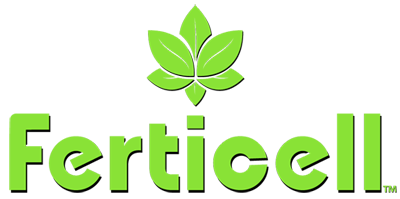Organic Nitrogen Blueberry Fertilizer for Plants
Amino Acids and plants have a unique role in berry production. Blueberries metabolize nitrogen differently than other plants, converting nitrate N to protein using a nitrate reductase allowing the plant to use the N it’s taken up. By spoon-feeding the plant with Ferticell™ Explorer™, we’re able to deliver that plant protein molecule without the need for the plant to make the conversion. This direct small dose of N can be applied in a myriad of ways along with other materials, maximizing application cost, and production efficiency throughout the growing season. Since Explorer™ is immediately available, N delivery timing is reduced, and nutrient management is easy and efficient.
“Nitrogen should not be in the nitrate form since nitrates occasionally have been shown to be toxic to blueberry plants.” – Richard A. Hayden, Fertilizing Blueberries, 2001

Organic California Blueberries that were grown with Ferticell™ Universal™ 0-0-1
To extrapolate the issues of nitrates in blueberries, you have to understand the issues caused by excess Nitrogen. By understanding the hormone production in blueberry plants, we know with excess nitrates, auxin hormone production will be excessive. These nitrates, although sourced from the soil must be converted into proteins in the leaf tissue and that conversion takes up energy that plant-derived amino acids do not. This buildup of auxins in the leaf tissue will cause vegetative growth and leaf flush, which will lower yields. It is important to evaluate all of the nitrogen sources being applied since all N will be taken up as Nitrate, or proteins if applied as such.
[A mention on our Part 1. It was indicated that we mentioned blueberries were introduced commercially during the Civil Wartime. The Wild Lowbush Blueberry is the native wild blueberry and is still grown today but not as the commonly cultivated blueberries we have discussed or the program below. You can find more information directly about the Wild Lowbush Blueberry at the Peaked Mountain Farm website, www.peakedmountainfarm.biz/]
In review, we can determine that for nitrate management, an organic nitrogen source, much like an amino acid, Ferticell™ Explorer™ is a more reliable source of nitrogen for blueberry production. Since blueberries respond poorly to excess nitrates, and ammonium sulfate and urea will still be taken up by the plant as nitrates. We can apply Explorer™ in low, economic rates because of the nitrogen availability, making it extremely efficient and most importantly economical.
Along with measuring our N delivery to limit a buildup of Auxins, we can help push root development in young plants from the beginning with Ferticell™ Universal™, and into harvest years by delivering a balanced pallet of both auxins, cytokinins, tannins, and other beneficial plant growth hormones to the plant, maximizing both vegetative growth and fruit production, creating a healthy growth curve all the way to yield, as seen in these organic California blueberries (See Figure A).
Looking at other Ferticell™ Products for Blueberries:
- Ferticell™ Nutri-Plus™ is a great amino acid complex that is a perfect defense against the cold weather or any period of biotic or abiotic plant stress. If there is a cold-weather period coming, or if there is a danger of a frost, we need to spray a foliar application of Ferticell™ Nutri-Plus™. This will help protect from the frost and prevent the plant from becoming stressed and stopping growth. It can also assist in plant recovery after a stress event.
- Ferticell™ Calcium 880Plus™ (25% Ca) or Ferticell™ ProCal™ 3-0-0 Plus 20Ca can deliver the needed calcium to the fruit after bloom. While calcium is phloem immobile, by applying Calcium 880Plus™ through the drip, and ProCal™ via foliar, we can tie the ProCal Ca into the leaf tissue using the Protein N 3% as a carrier, allowing the Calcium 880Plus to be more available to the fruit. Whether conventional or organic, Ferticell™ offers a superior calcium program in blueberry production
Consult your Ferticell™ representative or local distributor regarding specific rates and timings for all products mentioned.
Click for the Ferticell™ Conventional and Organic Blueberry Program
